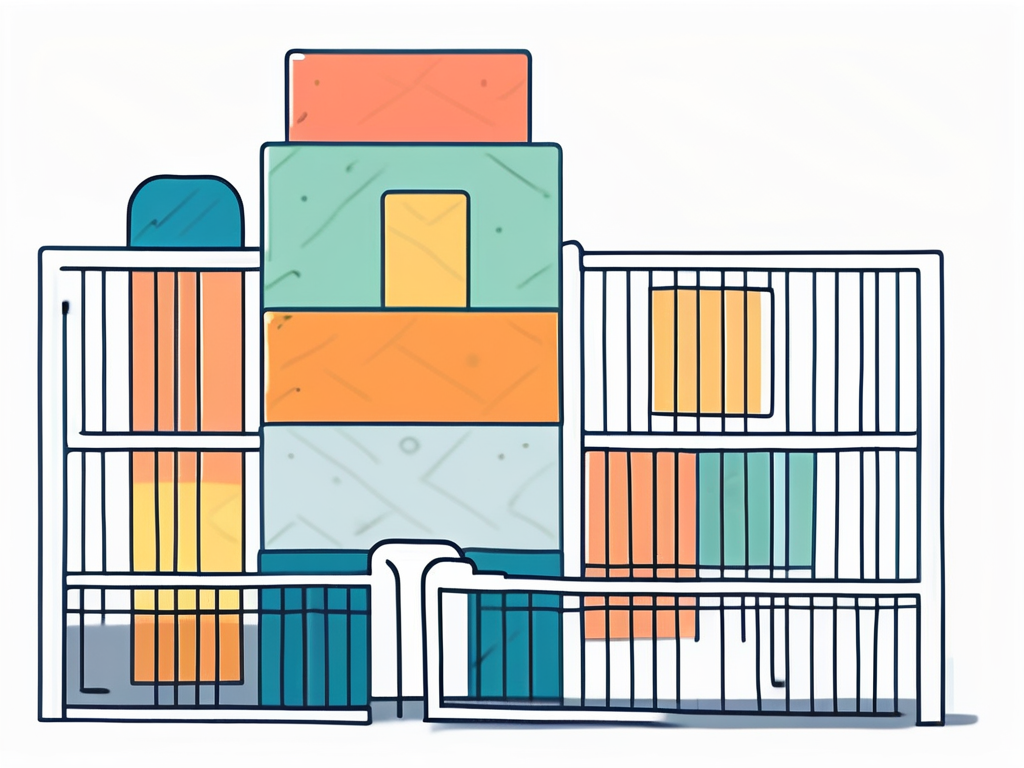In the field of childcare, HR administration plays a crucial role in ensuring the smooth functioning of organizations. Effective HR practices are vital for establishing a solid foundation that supports the creation of a safe and nurturing environment for children. This article will explore the various aspects of HR administration in childcare, including its importance, key responsibilities, challenges faced, impact on childcare quality, and future trends. By understanding and implementing these practices, childcare providers can optimize their HR processes and contribute to the overall well-being of children.
Understanding the Role of HR Administration in Childcare
As the name suggests, HR administration focuses on managing the human resources within an organization. In the context of childcare, HR administration involves overseeing various aspects related to the employees who care for children. This includes recruitment, training and development, performance management, policy implementation, and employee relations.

The Importance of HR in Childcare
HR administration is vital in childcare due to its impact on the well-being of children. The employees in this sector play a significant role in shaping young minds and providing a nurturing environment. HR practices help ensure that qualified and competent individuals are recruited and retained, enhancing the quality of care provided to children. Additionally, HR policies and procedures promote compliance with regulations and support the development of a professional workforce.
Key Responsibilities of HR Administrators in Childcare
HR administrators in childcare have various responsibilities aimed at attracting, developing, and retaining competent staff. These responsibilities include:
1. Recruitment and selection: Identifying suitable candidates, conducting interviews, and ensuring proper onboarding processes.
2. Training and development: Providing opportunities for employees to enhance their skills and knowledge through training programs.
3. Performance management: Regularly assessing employee performance, providing feedback, and implementing performance improvement plans.
4. Policy implementation: Ensuring that all employees are aware of and comply with HR policies and procedures.
5. Employee relations: Handling employee grievances, maintaining positive relationships, and promoting a healthy work culture.
Recruitment and selection are critical aspects of HR administration in childcare. HR administrators carefully identify suitable candidates who possess the necessary qualifications and skills to work with children. They conduct thorough interviews to assess the candidates’ suitability and ensure that the selected individuals align with the organization’s values and mission.
Once the right candidates are chosen, HR administrators focus on ensuring a smooth onboarding process. This includes providing new employees with the necessary information about the organization, its policies, and procedures. HR administrators also facilitate the completion of required paperwork, such as background checks and certifications, to ensure compliance with legal and regulatory requirements.
Training and development play a crucial role in enhancing the skills and knowledge of childcare employees. HR administrators design and implement training programs that address the specific needs of the workforce. These programs may cover topics such as child development, safety protocols, and effective communication. By investing in employee development, HR administrators contribute to the continuous improvement of the quality of care provided to children.
Performance management is another key responsibility of HR administrators in childcare. They regularly assess employee performance through evaluations and feedback sessions. These assessments help identify areas of improvement and provide an opportunity for employees to grow and develop professionally. HR administrators also implement performance improvement plans when necessary, ensuring that employees receive the support they need to excel in their roles.
Effective policy implementation is essential in maintaining a safe and supportive environment for both employees and children. HR administrators ensure that all employees are aware of and comply with HR policies and procedures. This includes policies related to child protection, health and safety, and code of conduct. By promoting adherence to these policies, HR administrators contribute to the overall well-being and welfare of children in childcare settings.
Employee relations is a critical aspect of HR administration in childcare. HR administrators handle employee grievances, ensuring that concerns are addressed promptly and fairly. They also play a role in maintaining positive relationships among employees, fostering a collaborative and supportive work culture. By promoting a healthy work environment, HR administrators contribute to the overall job satisfaction and engagement of employees, which, in turn, positively impacts the care provided to children.
Schedule a free 30-minutes session with us
Building a Solid HR Foundation in Childcare
Ensuring a solid HR foundation in childcare is paramount for the successful operation of any childcare organization. In addition to establishing clear and comprehensive HR policies, it is essential to consider the unique needs and challenges faced within the childcare industry. This includes addressing specific regulations related to child safety, staff-to-child ratios, and educational requirements for childcare providers. By incorporating these industry-specific considerations into HR policies, childcare organizations can create a safe and nurturing environment for both employees and the children under their care.

Essential HR Policies for Childcare
Establishing clear and comprehensive HR policies tailored to the unique requirements of childcare is essential. These policies should cover areas such as recruitment, employee conduct, child protection and safety, leave management, and professional development opportunities. By clearly outlining expectations and guidelines, HR policies contribute to building a strong foundation for childcare organizations.
Moreover, it is crucial for childcare HR policies to address the importance of ongoing training and certification for staff members. Continuous professional development not only enhances the skills and knowledge of childcare providers but also ensures compliance with industry standards and best practices. By prioritizing training and development initiatives within HR policies, childcare organizations can uphold high-quality care standards and promote a culture of learning and growth among employees.
Implementing Effective HR Strategies
Alongside policies, effective HR strategies are crucial for optimizing the workforce in childcare. This includes aligning HR practices with the organization’s goals, implementing effective communication channels, fostering employee engagement, and recognizing and rewarding exemplary performance. By implementing these strategies, HR administrators can create a positive work environment that encourages employee growth and improves overall organizational performance.
Furthermore, in the realm of childcare, HR strategies should also focus on promoting work-life balance for employees. Recognizing the demanding nature of childcare work, offering flexible scheduling options, providing access to support services, and prioritizing employee well-being can help reduce burnout and turnover rates within the organization. By incorporating work-life balance initiatives into HR strategies, childcare organizations can cultivate a supportive and sustainable work environment for their staff.
Challenges Faced by HR in Childcare
Overcoming Staffing Issues
One of the major challenges faced by HR administrators in childcare is ensuring adequate staffing levels. High turnover rates and difficulties in recruiting qualified candidates can lead to staffing shortages. To overcome this challenge, HR administrators can implement strategies such as improving recruitment processes, offering competitive compensation and benefits packages, and providing opportunities for professional growth and advancement.
Moreover, HR administrators can also focus on creating a positive work environment that fosters employee satisfaction and retention. This can be achieved through implementing employee recognition programs, promoting work-life balance initiatives, and fostering a culture of open communication and support.
Ensuring Compliance with Childcare Regulations
Childcare organizations are subject to strict regulations to ensure the safety and well-being of children. HR administrators play a crucial role in ensuring compliance with these regulations by developing policies and procedures that align with legal requirements, conducting regular training sessions on child protection and safety practices, and monitoring and auditing adherence to regulations.
Additionally, HR administrators can collaborate with regulatory bodies and industry associations to stay updated on any changes in childcare regulations and best practices. By staying informed and proactive, HR can ensure that the childcare organization remains compliant and upholds the highest standards of care for children.
Schedule a free 30-minutes session with us
The Impact of HR Administration on Childcare Quality
Enhancing Staff Performance through HR
By implementing effective HR practices, childcare organizations can enhance staff performance. Training and development programs help employees acquire new skills and stay updated on best practices. Regular performance assessments provide feedback and identify areas for improvement. Positive employee relations foster a supportive work environment, leading to increased job satisfaction and dedication to providing high-quality care for children.

HR’s Role in Creating a Safe and Nurturing Environment
HR practices contribute significantly to creating a safe and nurturing environment for children in childcare settings. Proper screening and selection processes ensure that individuals with appropriate qualifications and backgrounds are hired. HR policies related to child protection and safety, along with training programs, help ensure that employees are equipped with the necessary knowledge to maintain a safe environment. Additionally, fostering a positive work culture through effective HR strategies promotes teamwork, communication, and ultimately, the well-being of children.
Future Trends in HR Administration for Childcare
The Role of Technology in HR Administration
Technology continues to advance rapidly and revolutionize various industries, including childcare. In HR administration, the integration of advanced software solutions can streamline processes such as recruitment, employee record keeping, and performance management. Automated systems can help HR administrators save time, reduce administrative workload, and focus on strategic aspects of their role, ultimately contributing to more efficient and effective HR practices in childcare.
Preparing for Changes in Childcare Legislation
Childcare legislation and regulations are subject to change over time. HR administrators must stay abreast of these changes and ensure that their policies and practices remain compliant. By proactively monitoring and adapting to evolving legislation, childcare organizations can maintain high standards of care and continue to provide a safe and nurturing environment for children.
In conclusion, HR administration plays a pivotal role in building a solid foundation for childcare organizations. By understanding the significance of HR, fulfilling key responsibilities, addressing challenges, and leveraging the impact of effective HR practices on childcare quality, organizations can optimize their HR processes and contribute to the well-being of children. Additionally, embracing future trends and staying informed about changing legislation are essential for maintaining excellence in HR administration within the childcare sector.
Schedule a free 30-minutes session with us

